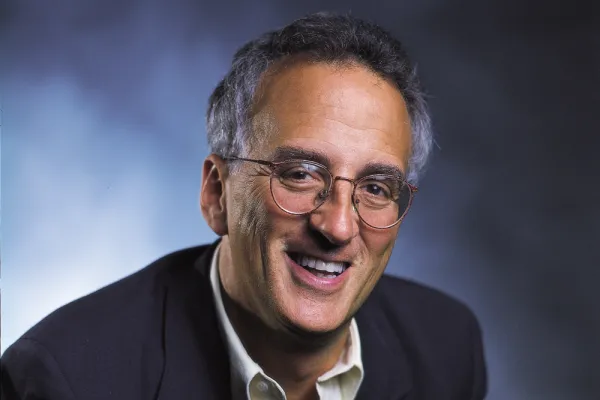The Tokyo Olympics: A Sports Economist's View
Research & Inquiry

Published August 4, 2021
As the eyes of the world are focused on the Tokyo Olympics, Smith College economics professor Andrew Zimbalist is watching with special interest.
A renowned sports economist who also writes extensively about Latin America, Zimbalist is, according to The New York Times, one of the nation’s leading scholars on the business of the Olympics. The author of four books about the global games, and a leading figure in the movement that brought a halt to Boston’s 2024 Olympic bid, Zimbalist has been interviewed by scores of media outlets all over the world about the Tokyo games—and about the future of this global sporting event. His main message: Reform is needed. And the cost of hosting the Olympics generally exceeds the rewards.
What’s it like to watch this year’s Olympics through a sports economist’s lens? We talked with Zimbalist, who serves as the college’s Robert A. Woods Professor of Economics.
How did you become interested in the economics of the Olympics?
By accident! In 1990, during the 1990 Major League Baseball lockout, I was putting my son to bed, and he asked if the lockout meant he wouldn’t be able to play Little League. I reassured him, and as I reached to turn out the light, he said, “Dad, you’re an economist. You like baseball, and you just finished your book on Panama. You should write a book about the economics of baseball.”
The next day, I went to the basement of Neilson Library and looked through the stacks to see what they had—and then I put together a book proposal for “Baseball and Billions,” which was published by Basic Books and became a business bestseller. Soon I was asked to opine about other team sports and sports mega-events. So I started researching that, and eventually published four books about the Olympics [“Circus Maximus,” “No Boston Olympics,” “Rio 2016” and “The International Handbook on the Economics of Mega Sporting Events”].
The IOC, among others, has invited me to give my thoughts on the topic. So I stay in touch with the enemy. [laughs]
So what about “the enemy”? What do you say to people who think you’re anti-Olympics?
I’m not anti-Olympic; I think the Olympics are fine. But the way they’re conducted is enormously wasteful. Financially, they pad the pockets of people who don’t need it. Environmentally, they’re horrific: Japan cut down trees planted for the 1964 Olympics to create a “live zone” for this year’s games. The Olympics were intended as a global sporting event, but they’ve become something quite different.
What’s the solution? Can the Olympics be saved?
The Olympics should continue, but we need to do it in a more environmentally and financially sustainable way. Right now, we ask host cities to spend money they don’t have to build new facilities, based on a false assumption that this will create a positive benefit for their cities. I’m a proponent of having a permanent host city for the summer games, and a permanent host city for the winter games. That would allow the games to continue in a more sustainable way.
With others, you’ve been advocating for this for a while. Are you seeing a change in attitudes?
Yes. Fewer and fewer cities are applying to host the Olympics. And lots of corporate sponsors have pulled out; there’s increasing reluctance to be associated with the event.
The IOC has tried to make reforms, but those reforms have been too timid. The IOC’s members have no incentive to make changes too readily; their power comes from being the people who choose the host city. There’s a long way to go—but the process is underway, and I think changes will come.
Are you watching this year’s Olympic Games?
Some people watch for hours and hours and hours. I always watch a little, especially women’s gymnastics. I felt very sad when Simone Biles dropped out of some of her events—and I attribute that mostly to Larry Nassar. I had the opportunity to watch in person the Youth Olympics in Buenos Aires in 2018, and I enjoyed that. So much of the Olympics is about the pomp and circumstance, and I find that tiresome. But watching the sporting competitions is enjoyable.